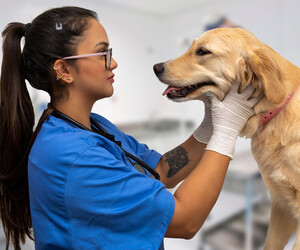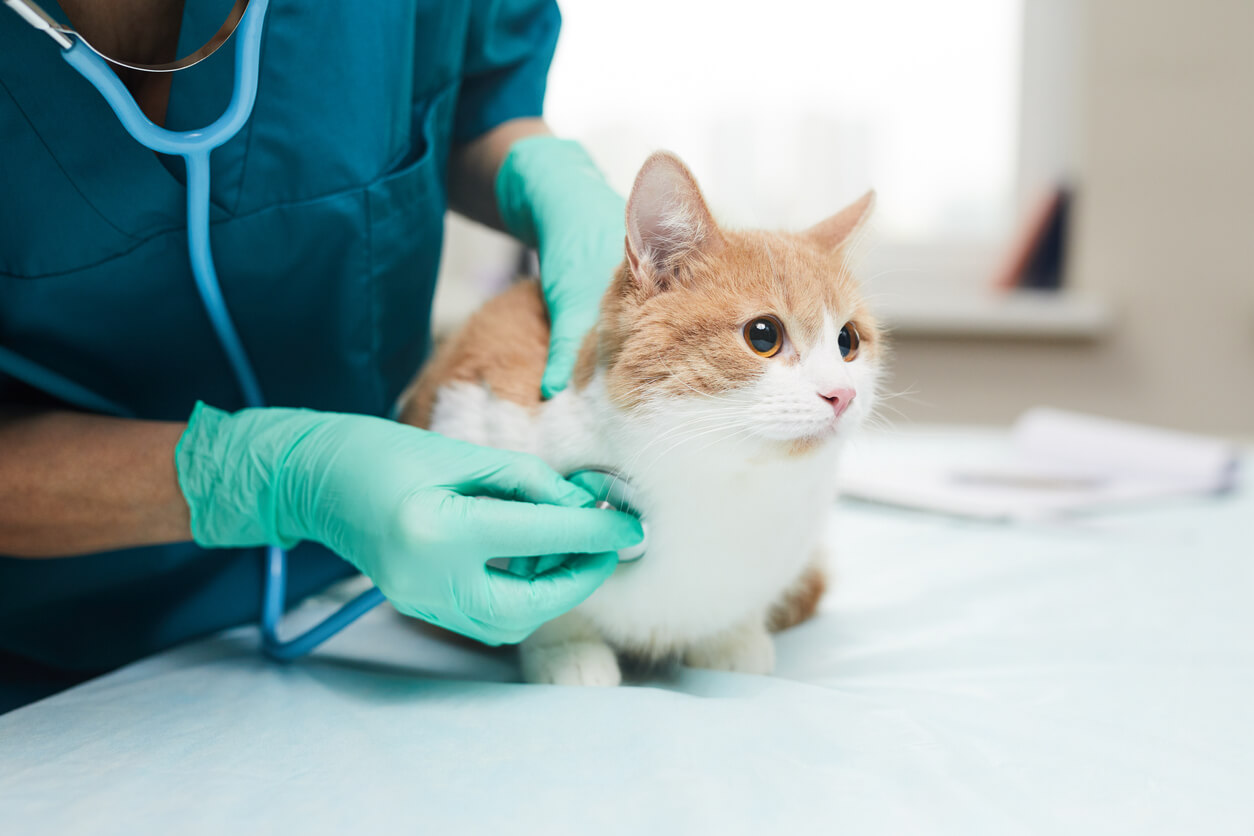Just How Pet Health Checkups Help Detect Very Early Indications of Illness and Maintain Your Pet Healthy And Balanced
Just How Pet Health Checkups Help Detect Very Early Indications of Illness and Maintain Your Pet Healthy And Balanced
Blog Article
Inoculation Standards From Your Trusted Veterinarian
Vaccination standards given by your relied on veterinarian play a critical function in guarding your family pet's wellness and wellness. Additionally, dealing with common misunderstandings bordering vaccinations can even more enhance pet dog proprietors' self-confidence in these preventive procedures.

Importance of Inoculations
Vaccinations play a critical role in safeguarding pet dogs versus a variety of avoidable illness. By promoting the body immune system to identify and combat particular virus, vaccinations dramatically reduce the incidence of contagious illness that can influence a pet's wellness and durability. Not only do inoculations protect individual animals, but they additionally add to herd immunity, thereby lowering the total frequency of illness in the animal population.
Timely inoculations help to alleviate the spread of conditions such as rabies, parvovirus, and distemper, which can have extreme effects for both pets and human beings. Vaccinations are usually a need for boarding centers, grooming services, and pet parks, making them vital for those who wish to socialize their pets.

Core Injections for Pets
While the certain inoculation needs of family pets can differ based on specific aspects, core vaccinations are widely recommended to safeguard against one of the most severe and typical illness (Emergency Vet). Core vaccinations are those deemed necessary for all animals, no matter their way of life or geographical location, as they protect versus possibly fatal and highly transmittable health problems
For pets, the core injections include those for canine distemper, parvovirus, adenovirus (liver disease), and rabies. Canine distemper is a viral illness that impacts the respiratory system, stomach, and nerve systems. Parvovirus is known for creating serious gastrointestinal health problem, specifically in puppies. Adenovirus can lead to liver illness, while rabies is a zoonotic condition that positions a threat to both pet dogs and humans.
In pet cats, core injections encompass feline panleukopenia, feline calicivirus, feline herpesvirus (rhinotracheitis), and rabies. Feline panleukopenia is a very transmittable viral illness that influences the body immune system and intestines. Calicivirus and herpesvirus are significant contributors to top respiratory system infections in cats, while rabies remains a critical issue for public health.
Talk to your veterinarian to ensure your family pets obtain their core vaccinations on schedule.
Non-Core Vaccines Explained
Non-core vaccines are tailored to resolve certain dangers related to a family pet's way of life, exposure, and environment to particular conditions. Unlike core vaccinations, which are widely recommended for all pet dogs, non-core vaccines are taken into consideration based on private conditions. These injections are especially vital for pets that may come across special virus because of their geographical location, travel routines, or tasks.
Examples of non-core injections include those for Bordetella bronchiseptica, which is linked to kennel coughing, and Lyme condition, brought on by ticks. Pet dogs that often engage with various other animals, such as see page those in boarding facilities, pet parks, or grooming settings, might take advantage of Bordetella inoculation. If you live in an area where Lyme disease is prevalent, immunizing against this disease can be a prudent selection for outdoor-loving canines.
Other non-core injections might include those for leptospirosis, canine influenza, and feline leukemia, depending upon the details danger variables present. It is necessary to have a thorough conversation with your veterinarian regarding your pet's lifestyle and the possible requirement for these injections, making sure a tailored inoculation approach that best secures your hairy good friend.
Vaccination Schedule Summary

As pets grow, it is necessary to abide by the recommended booster inoculations. Emergency Vet. For adult pets, core vaccines are generally offered every one to three years, relying on the particular injection and local laws. Non-core vaccinations might be advised based on way of living factors and local illness frequency, requiring a customized technique
Routine vet check-ups are essential for upgrading inoculation timetables. Your vet can offer assistance on one of the most appropriate booster shots for your family pet, considering age, health and wellness status, and ecological risks. By remaining aggressive and notified, pet owners can ensure their hairy friends receive prompt and effective vaccinations, consequently guarding their health and wellness and well-being throughout their lives.
Typical Myths About Vaccinations
Misunderstandings regarding pet dog vaccinations can result in complication and unwillingness amongst pet proprietors relating to the immunization process. One widespread myth is that vaccines are unneeded for indoor animals. While it's real that indoor animals face reduced threats, they are not completely unsusceptible to important link conditions, as microorganisms can be presented via different means, including human clothes and other pet dogs.
An additional misconception is that vaccinations can cause the diseases they intend to stop. In truth, many vaccines have inactivated or undermined microorganisms, which can not cause illness in healthy and balanced pets. Some pet dog owners likewise think that their pets ought to not be immunized if they are already healthy and balanced; however, inoculations are an aggressive action that aids prevent the start of ailment.
Furthermore, many pet dog owners are afraid that vaccines will certainly cause long-term health and wellness problems. While negative effects can occur, they go to this web-site are typically moderate and momentary. The advantages of vaccination-- protecting pet dogs from possibly life-threatening conditions-- much outweigh the risks. Comprehending these common myths is critical for liable pet dog ownership and making certain the wellness and safety of your hairy companions. Constantly consult your veterinarian for precise details customized to your pet dog's specific demands.
Final Thought
In summary, adherence to inoculation standards is important for guaranteeing the health and long life of pet dogs. Core injections provide necessary protection against serious conditions, while non-core vaccines attend to particular risks based upon private way of livings. Establishing a detailed inoculation schedule, in conjunction with routine vet check-ups, facilitates optimum health and wellness management. Eliminating common misconceptions surrounding vaccinations further reinforces the significance of notified decision-making in family pet care. Inevitably, a proactive approach to vaccinations is important for preserving animal health.
Not just do inoculations shield specific pets, however they also contribute to herd immunity, thus reducing the total frequency of diseases in the animal populace.
False impressions concerning family pet inoculations can lead to confusion and reluctance amongst family pet proprietors relating to the immunization procedure. While it's true that indoor family pets deal with reduced risks, they are not entirely immune to conditions, as virus can be presented via various means, including human garments and various other pet dogs.
Some family pet proprietors likewise believe that their pets ought to not be immunized if they are currently healthy and balanced; nonetheless, vaccinations are an aggressive action that aids stop the start of ailment.
The advantages of inoculation-- shielding pet dogs from possibly dangerous diseases-- far surpass the dangers.
Report this page